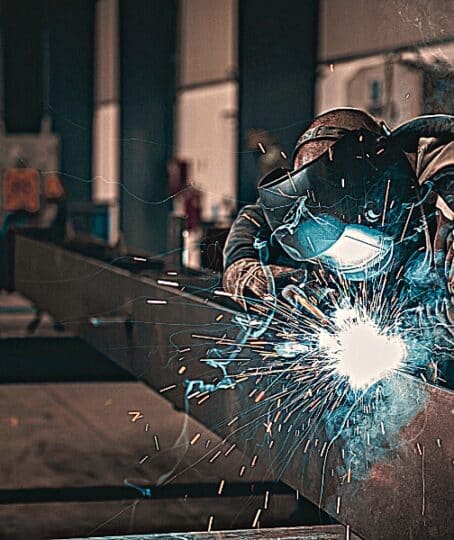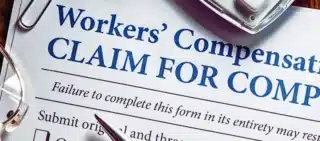
Common Reasons an Employer Won't Report Your Work Injury A total of 101,400 non-fatal work-related injuries and illnesses occurred in...


To receive workers’ compensation benefits, you must file a claim. Your supervisor must be told about any injuries as soon as possible to begin the claim process.
Filing a claim with your employer’s insurance company is the next step that must be completed promptly. Each insurer has a policy that will give time limits for filing claims and brief periods in which evidence must be gathered to prove your injuries.

Typically, workers' compensation doesn't cover you if you’re injured at work off the clock in Bloomington. However, there are a few exceptions to this rule. Depending on your situation, you may still be able to receive compensation for your injuries.
Workers' compensation coverage may not cover your commute to work, but it does begin when you arrive at your place of employment before you clock in, just as you are covered on the property after you've clocked out. Employers owe their employees a duty of care at the workplace, and they are legally required to have appropriate safeguards in place.
Understanding what your employer is liable for may require the use of a Bloomington workers' comp attorney. That attorney will help you understand your rights and to see if your off-the-clock injuries are covered.
Workers' compensation covers 100% of work-related injuries when you are on the clock. However, daily commutes and lunch breaks may or may not be considered work-related.
If you were in the zone of employment (like running errands for your employer), you might still be eligible for benefits for an off-the-clock injuries. Requests made by your employer may be an exception to the coming and going rule, entitling you to help for injuries received while in the zone of employment. If you have to commute to different job sites, this may also be considered to be within the zone of employment under Illinois workers' compensation laws.
Should you sprain your ankle in a slip and fall outside your favorite restaurant on your lunch break or if your carpool is involved in an accident on your way to or from work on your regular commute, you may not have the same injury at work rights. You will need the help of a skilled workers' compensation attorney to determine if you are covered.
The coming and going rule deviates from the general rule that workers are entitled to compensation benefits for work-related injuries. Generally, getting hurt at work off the clock in Illinois does not entitle you to workers' compensation for any injuries received.
Since your employer has no control over what happens to you during your trip to or from work, it may be challenging to prove that they owed you a duty of care and that it was neglected. However, if you were performing a work-related task while commuting, this may be considered within your zone of employment, and workers' compensation should cover it.
The coming and going rule is applied differently to each case, since each case is unique. Your case will require evaluation to ensure that you were acting within your scope of employment. Specific factors must be evaluated to see if your case qualifies for workers' compensation. For example, if injured while traveling for work, like going between different job sites, your conduct at the time of the accident may be evaluated to see if you qualify for workers' compensation.
The coming and going rule may be applied more leniently to a car accident for employees like bus drivers, pilots, and truck drivers, since travel is an essential part of their regular work-related duties. However, running personal errands will be considered outside the zone of employment and will disqualify employees from workers' compensation benefits.
Workers' compensation does not typically cover personal injuries when you are off the clock. However, there are expectations to this rule, and depending on the situation, you may be deemed eligible for compensation.
Understanding your employer's liability if you are injured off the clock could help you receive fair compensation. You must prove that your employer owed you a duty of care, and that they neglected that duty.
The following are some examples of exceptions to the normal workers' compensation rules.
Worker's compensation starts when you arrive at your employer's premises, not when you punch in. This includes parking lots and structures, grassy areas, and sidewalks controlled by your employer. So, if your company has been neglecting these areas, and you end up injured, you may be covered by workers' compensation.
If you are required to perform a duty that directly benefits your employer, you should be covered by workers' compensation. For example, having a meal with a client would be considered part of the zone of employment. If you were hit by another driver returning to the office, you would still qualify for workers' compensation.
Sometimes during your routine for your work day, you are asked to do additional tasks, like picking up your employer's lunch in addition to your own or picking up or dropping off mail while you are out on break. If you are injured while fulfilling those tasks, then you will be eligible for workers' compensation.
Under normal circumstances, workers' compensation would not be offered to you if you suffered injuries while running errands. However, the extra tasks given to you by your employer expand your zone of employment. Therefore, you would likely qualify for workers' compensation benefits.
Illinois state laws generally consider it an exception to the rule if you regularly receive payment for your commute. Therefore, if injured going to or from work, workers' compensation will likely cover injuries received during the commute.
If you are reimbursed for commute expenses, it's not the same thing as receiving regular payment for your commute. If you are eligible for commute reimbursement, it does not necessarily mean that workers' compensation will cover an injury received during the commute.
If you drive a company vehicle, the arrangement is an extension of your work environment and most likely beneficial for your employer. As such, injuries received while driving your company vehicle are usually covered by workers' compensation. Of course, your conduct at the time of the accident will be reviewed to ensure you were driving safely.
Specific factors will be considered during the investigation into your accident, like whether you were under the influence of alcohol. Workers' compensation will not cover your injuries if you are found to be under the influence of alcohol. Crime-related acts (like a DUI) would be considered misconduct, and any compensation you may have been eligible for will be null and void.
To receive workers' compensation benefits, you must file a claim. Your supervisor must be told about any injuries as soon as possible to begin the claim process.
Filing a claim with your employer's insurance company is the next step that must be completed promptly. Each insurer has a policy that will give time limits for filing claims and brief periods in which evidence must be gathered to prove your injuries.
A lack of evidence is one of the most common reasons a workers’ comp claim is denied by the insurance company. Even if you miss just one of the required documents, it is reason enough for your claim to be denied.
Filing an appeal to a denied claim is similar to filing the initial claim, and has a time limit. A missed deadline could mean you miss out on benefits you could have been eligible for through your company's workers' compensation policy.
Dealing with insurance companies by yourself can take a lot of work. You could be out of work for an extended period of time. Hospital bills will add up while you are missing out on the paychecks necessary to pay those bills.
As such, insurance companies may try to settle your claim quickly and for far less than what is needed for you to recover. While this may keep costs down for the insurance company since they will not be potentially paying your benefits for years, it may not be in your best interest.
Receiving money quickly to pay your bills and not having to deal with the insurance company for an extended period of time may sound like a good option. However, you may not be able to pay for all the needed medical care, as well as catch up on any other bills, like rent and utilities, if you settle too quickly and for an unfair amount.
If you have been injured at work off the clock, speaking with a trusted attorney can help you understand your rights and obligations. A workers' compensation attorney can help you calculate the total amount needed to fully recover from your injuries, as well as help you to receive compensation for work missed. Knowing the benefits available to you can help you avoid potential hardships in the future and aid you in obtaining the benefits you need.

Common Reasons an Employer Won't Report Your Work Injury A total of 101,400 non-fatal work-related injuries and illnesses occurred in...

At Strong Law Offices, we have a team of workers' compensation lawyers who understand the financial setbacks and physical limitations...

Common Equipment Involved in Run-Over Accidents Illinois job sites, from construction zones to industrial plants, depend on machinery to stay...